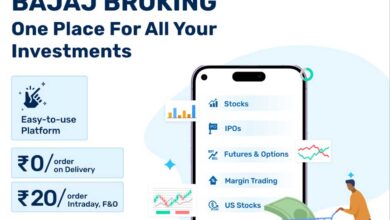
Businesses are increasingly recognizing the pivotal role of customer data in driving strategic decisions and enhancing customer experiences.
Enter Customer Data Platforms (CDPs), the cornerstone of modern marketing operations. CDPs serve as a centralized hub for collecting, organizing, and analyzing customer data from various sources, offering invaluable insights into customer behavior, preferences, and interactions across multiple channels.
Enhancing Customer Insights and Personalization
One of the primary benefits of a customer data platform lies in its ability to provide businesses with comprehensive and unified customer profiles.
By aggregating data from disparate sources such as websites, mobile apps, social media, and CRM systems, CDPs offer a holistic view of each customer journey. This wealth of information empowers marketers to craft highly targeted and personalized campaigns, thereby fostering stronger customer relationships and driving engagement.
Optimizing Marketing Strategies
Furthermore, CDPs play a crucial role in optimizing marketing strategies by enabling data-driven decision-making.
By leveraging advanced analytics and machine learning algorithms, businesses can identify patterns, trends, and correlations within their customer data.
This deep understanding of customer behavior allows marketers to refine their segmentation strategies, tailor content and offers to specific audience segments, and ultimately, maximize the effectiveness of their marketing efforts.
Facilitating Seamless Omnichannel Experiences
In today’s omnichannel landscape, consistency and coherence across touchpoints are paramount. CDPs facilitate seamless omnichannel experiences by ensuring that customer data is synchronized and accessible across all channels in real time.
Whether a customer interacts with a brand through a website, mobile app, social media, or in-store, CDPs enable personalized and contextually relevant interactions, thereby fostering a unified brand experience and driving customer loyalty.
Ensuring Compliance and Data Security
Amidst growing concerns over data privacy and regulations such as GDPR and CCPA, businesses must prioritize data compliance and security. CDPs help mitigate risks by providing robust data governance capabilities, including consent management, data anonymization, and access controls.
By adhering to regulatory requirements and implementing stringent security measures, businesses can build trust with their customers and safeguard sensitive information.
Pricing Considerations
When it comes to pricing, CDPs vary widely depending on factors such as the vendor, features, and scale of implementation. Some CDP providers offer tiered pricing models based on the volume of data or the number of customer records, making it accessible to businesses of all sizes.
Others may charge based on usage metrics such as the number of data sources integrated or the level of support provided.
Additionally, implementation and ongoing maintenance costs should be factored into the equation. While investing in a CDP may require upfront expenditure, the long-term benefits in terms of improved customer insights, marketing efficiency, and ROI often justify the investment.
Customization and Scalability
Another key advantage of Customer Data Platforms is their flexibility and scalability. CDPs are designed to accommodate the evolving needs of businesses, allowing for customization and integration with existing systems and technologies.
Whether a business operates in B2B or B2C, in retail or healthcare, CDPs can be tailored to suit specific industry requirements and use cases. Moreover, as businesses grow and expand their operations, CDPs can scale seamlessly to handle larger volumes of data and accommodate increasing complexities.
Driving Competitive Advantage
In today’s hyper-competitive landscape, gaining a competitive edge is paramount for businesses looking to succeed. CDPs offer a strategic advantage by empowering businesses to stay ahead of the curve through data-driven insights and actionable intelligence.
By leveraging real-time customer data, businesses can anticipate market trends, identify emerging opportunities, and proactively address customer needs. This proactive approach not only enhances customer satisfaction but also positions businesses as industry leaders.
Read Also: Innovative Strategies That Drive Business Success
Continued Innovation and Evolution
The realm of customer data and marketing technology is constantly evolving, driven by advancements in AI, machine learning, and data analytics. As such, Customer Data Platforms are continuously evolving to keep pace with changing market dynamics and technological advancements.
Leading CDP providers invest heavily in research and development to enhance their capabilities, introducing new features and functionalities to meet the evolving needs of businesses. By staying at the forefront of innovation, businesses can leverage the latest advancements in CDP technology to gain a competitive edge and drive sustainable growth.
Final Thoughts
In conclusion, Customer Data Platforms have emerged as indispensable tools for modern businesses seeking to thrive in a data-driven world. By harnessing the power of customer data, CDPs enable organizations to gain deeper insights into their customers, optimize marketing strategies, and deliver personalized omnichannel experiences.
Moreover, CDPs play a crucial role in ensuring data compliance and security, thereby enhancing trust and credibility with customers. While the pricing of CDPs may vary, the value they provide in terms of driving revenue growth and fostering customer loyalty makes them a worthwhile investment for businesses across industries.
Embracing CDP technology is not just about staying competitive; it’s about staying relevant in an increasingly customer-centric marketplace.







